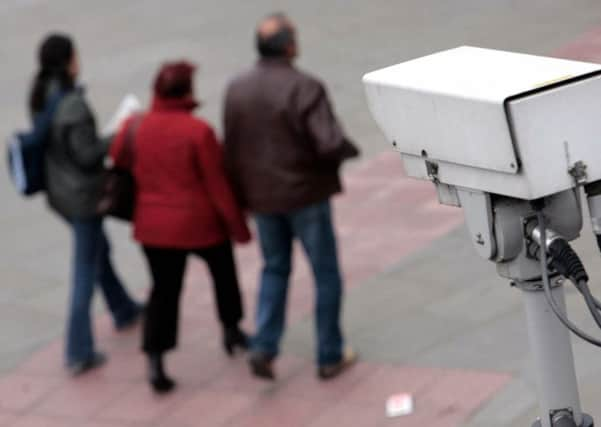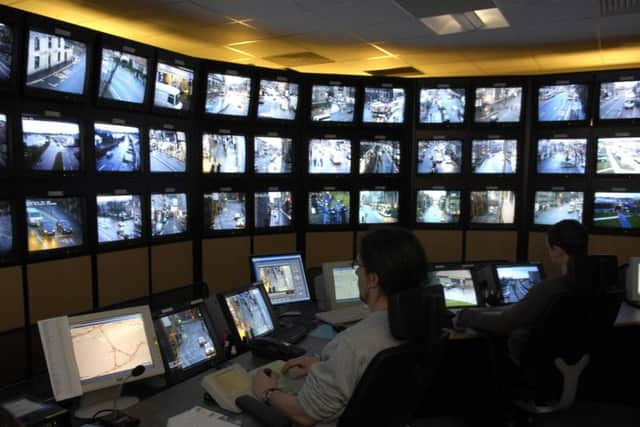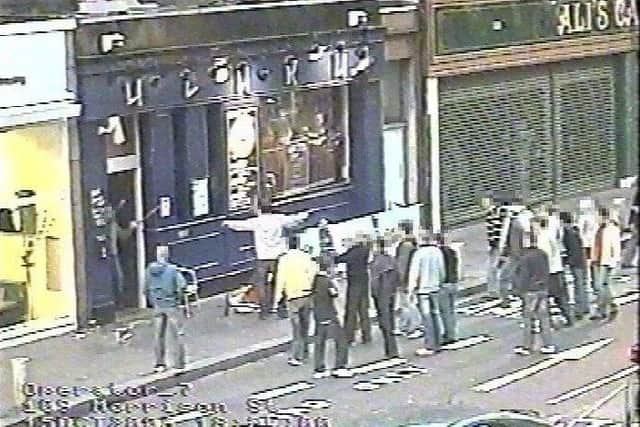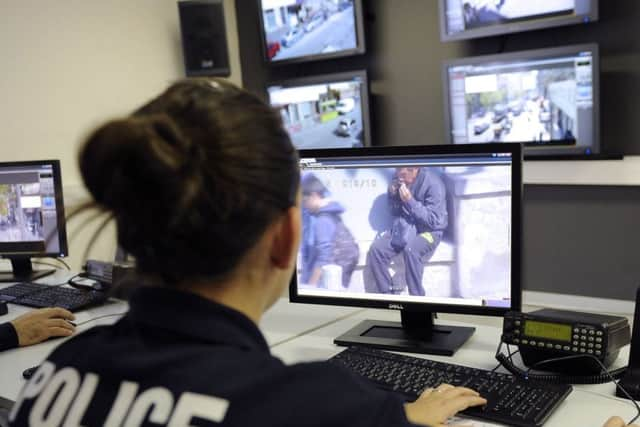Edinburgh CCTV set to go HD with £1m digital upgrade


Cameras will be able to generate high-resolution images as clear as those produced by a home television, dramatically boosting the fight against crime.
It is understood the system will be equipped with software which enables face and car number-plate recognition.
Advertisement
Hide AdAdvertisement
Hide AdAnd city bosses will consider deploying the Edinburgh-wide “hub” to snare those who commit offences such as allowing dogs to foul public places and fly-tipping.


The seven-figure investment is the first step in a long-term plan to integrate equipment belonging to the council and CCTV operators including Lothian Buses, Edinburgh Trams and traffic management organisations.
Police Scotland and the fire service are among other bodies which will be included in the system.
Once delivered, the network would allow individuals to be tracked while using public transport, spending time in shopping centres and participating in demonstrations.
Advertisement
Hide AdAdvertisement
Hide AdAnd more mobile and temporary cameras will allow crime-fighters to focus on trouble hotspots.


Discussions have also taken place with ministers about providing CCTV coverage for the whole of south-east Scotland.
This would have the Capital at its heart and allow seamless monitoring across regional and departmental boundaries.
Councillor Cammy Day, community safety leader, said: “If our staff are not out working on the cameras in the next few weeks, it will be in the next month or two – it’s imminent.
Advertisement
Hide AdAdvertisement
Hide Ad“The main goal here is to have an integrated CCTV system for the capital city. We have the parliament, where people come to protest. It’s one of the biggest tourist cities in the UK. We want safety for people who come here and people who stay here.


“Rather than have a network for roads, another for trams and buses, another for the council, and so on, there needs to be investment in one hub for the city.”
Confirming that the improvement programme would lead to CCTV images of far higher quality, he said: “The immediate step will be that the council will upgrade its entire stock of 214 cameras.
“Our analogue cameras are a bit slow and do not offer the best images. The new cameras should be able to produce images that are as clear as watching television in your own home.”
Advertisement
Hide AdAdvertisement
Hide AdOne of the most significant potential improvements to Edinburgh’s CCTV system is the addition of facial recognition software.


The newest versions of these systems have the ability to scan faces in real time and match them to those stored in a database.
Meanwhile, vehicle registration recognition allows number plates to be immediately checked against databases to identify if a car is stolen or uninsured. It is also used in London to enforce the congestion charge.
Moves to upgrade the council’s camera network come after Glasgow secured £24m to spend on “smart technologies” aimed at making the city cleaner, greener and healthier.
Advertisement
Hide AdAdvertisement
Hide AdAround half of this has been ploughed into upgrading Glasgow’s public space CCTV system.
Cllr Day said the creation of a new hub for Edinburgh would require investment on a similar scale.
“Through this upgrade process, the city council will probably add in some [cameras] but not a huge number,” he added.


“I would hope that there will be some additional cameras installed, at the request of residents, communities and what the police might ask for. The short-term goal is to upgrade our cameras to digital. Long term, we want to have one hub for Edinburgh that would take in everybody’s CCTV cameras.
Advertisement
Hide AdAdvertisement
Hide Ad“We would hope to join them all up in the new system, at least doubling the number of cameras in our current network.”
Cllr Day said officials would also explore ways of using the technology to tackle dog fouling, litter dropping and other forms of antisocial behaviour, adding: “Local communities are telling us that these are big issues.
“There would be no reason why we could not install one of our temporary cameras, which would link up with the full network. So the opportunity for it to be used in areas [other than fighting crime] would be considered.”
Opposition and legal figures have welcomed moves to enhance Edinburgh’s CCTV system.
Advertisement
Hide AdAdvertisement
Hide AdBut they said it would be essential to provide extensive staff training so that civil liberties are not infringed.
John Scott, an Edinburgh-based lawyer and QC, said: “In a number of ways, you’re right to say that having as good a public CCTV system as possible has numerous advantages, not least in the prevention and prosecution of crime.
“But it’s important to make sure that safeguards are developed. There have been abuses of CCTV with, for example, operators using it to stalk individuals.
“The genie is out of the bottle. I think the amount of public-facing CCTV means people understand they are going to be captured most of the time when they’re out. I would say it’s more at the stage of ensuring that the people operating the equipment itself are fully and properly trained.”
Advertisement
Hide AdAdvertisement
Hide AdHowever, campaign group Big Brother Watch, established to expose the level of surveillance and defend civil liberties, expressed “profound concern” with aspects of the scheme.
Chief executive Renate Samson said: “CCTV has been shown to be beneficial when investigating car crime over and above other forms of crime. Knowing this, why Scotland wish to expand their system and add features such as the very intrusive facial biometrics to their CCTV system is unclear, particularly if they claim this is not about ‘snooping’.
“The expansion of this system which will watch everyone go about their day-to-day business, often completely innocently, is a concern. CCTV should be used where it’s most beneficial, not as a standard part of public space design.
“Introducing a system where cameras are deployed everywhere with added features such as facial recognition to the system may lead to CCTV becoming value for money for the council, but the interference to people’s privacy, particularly when facial biometrics are used should raise profound concern with people across Scotland.”
Advertisement
Hide AdAdvertisement
Hide AdBut Councillor Joanna Mowat, Conservative member for the city centre, said Capital residents understood why CCTV was needed.
She said: “I know there are concerns about civil liberties but I wonder if these are coming from people who are not aware of the amount of CCTV we have now.
“My understanding is that this technology will provide clearer images, particularly at lower-light levels. This is about increasing the quality rather than the extent of coverage.
“This technology helps fight crime and keeps people safe. We’re not interested in snooping.”
Advertisement
Hide AdAdvertisement
Hide AdGerry Farrell, co-founder of the Leithers Don’t Litter campaign, wants CCTV used more to identify dog foulers, something previously backed by environment leader Cllr Lesley Hinds.
He said: “I’m very pleased the council are operating CCTV. It’s been proven that installing CCTV has led to more prosecutions by providing evidence. The CCTV and notices warning people that cameras are operating has also created an awareness that persistent antisocial behaviour is not acceptable.
“Creating a social climate [where littering and dog-fouling is not tolerated] is one of the most important things we can do.”
Neil Greig, director of policy and research for the Institute of Advanced Motorists, stressed that the authorities must be “completely transparent” in the way they use the camera.
Advertisement
Hide AdAdvertisement
Hide AdMr Greig added: “If the cameras are used for additional surveillance of things like yellow box junctions, which it isn’t set up for, then that can lead to problems and people feeling they are being unfairly targeted for something which isn’t illegal.”